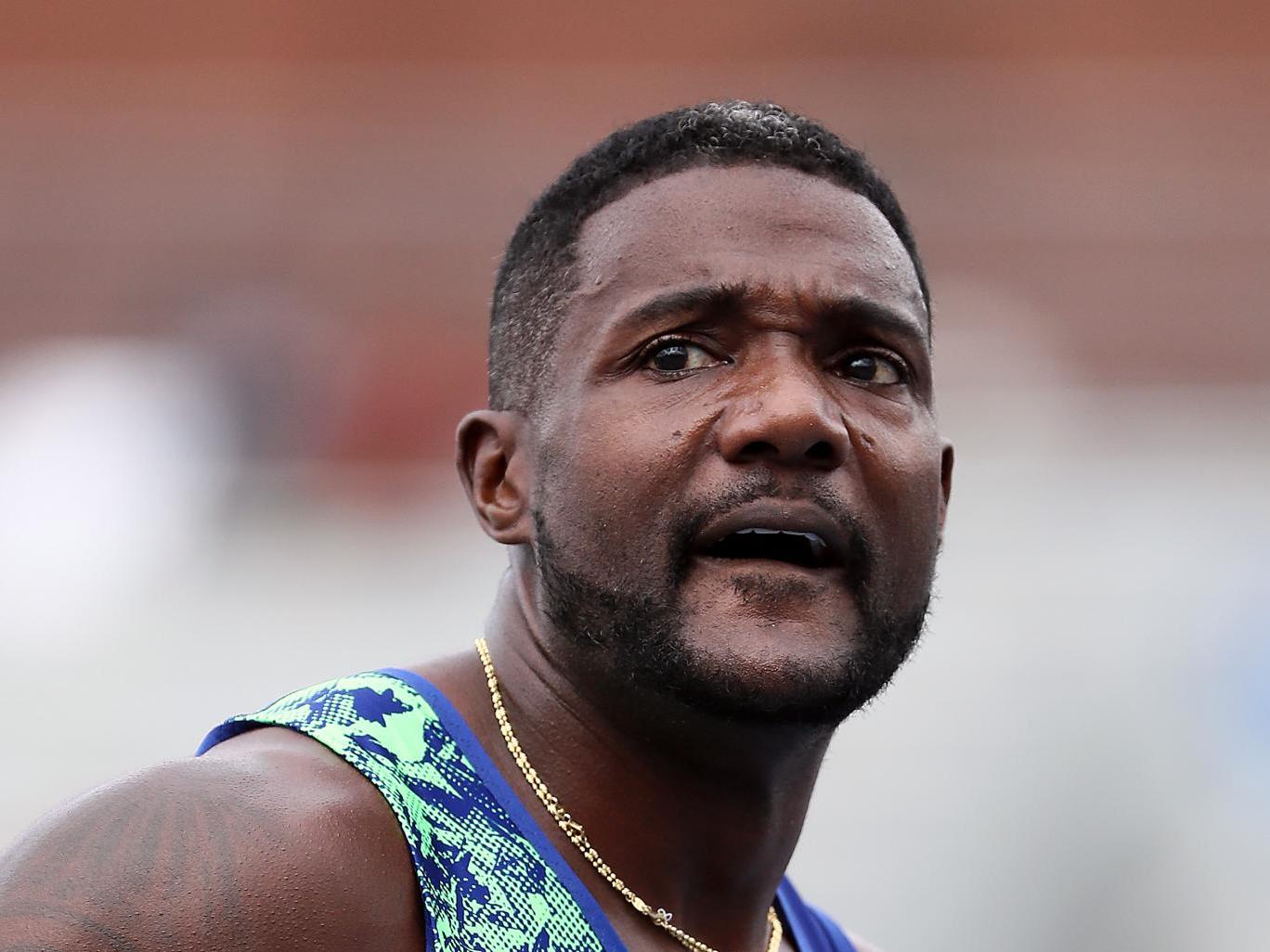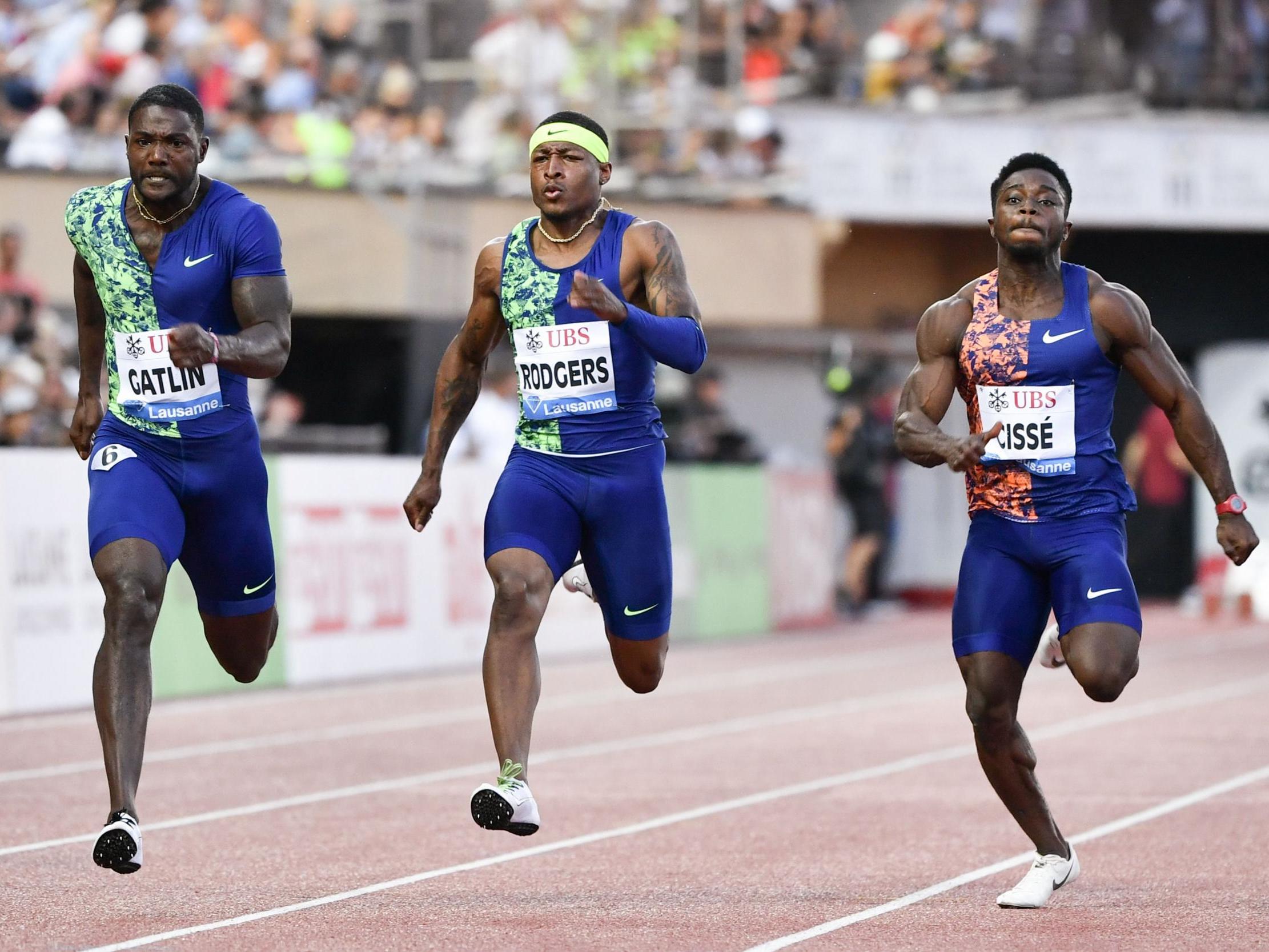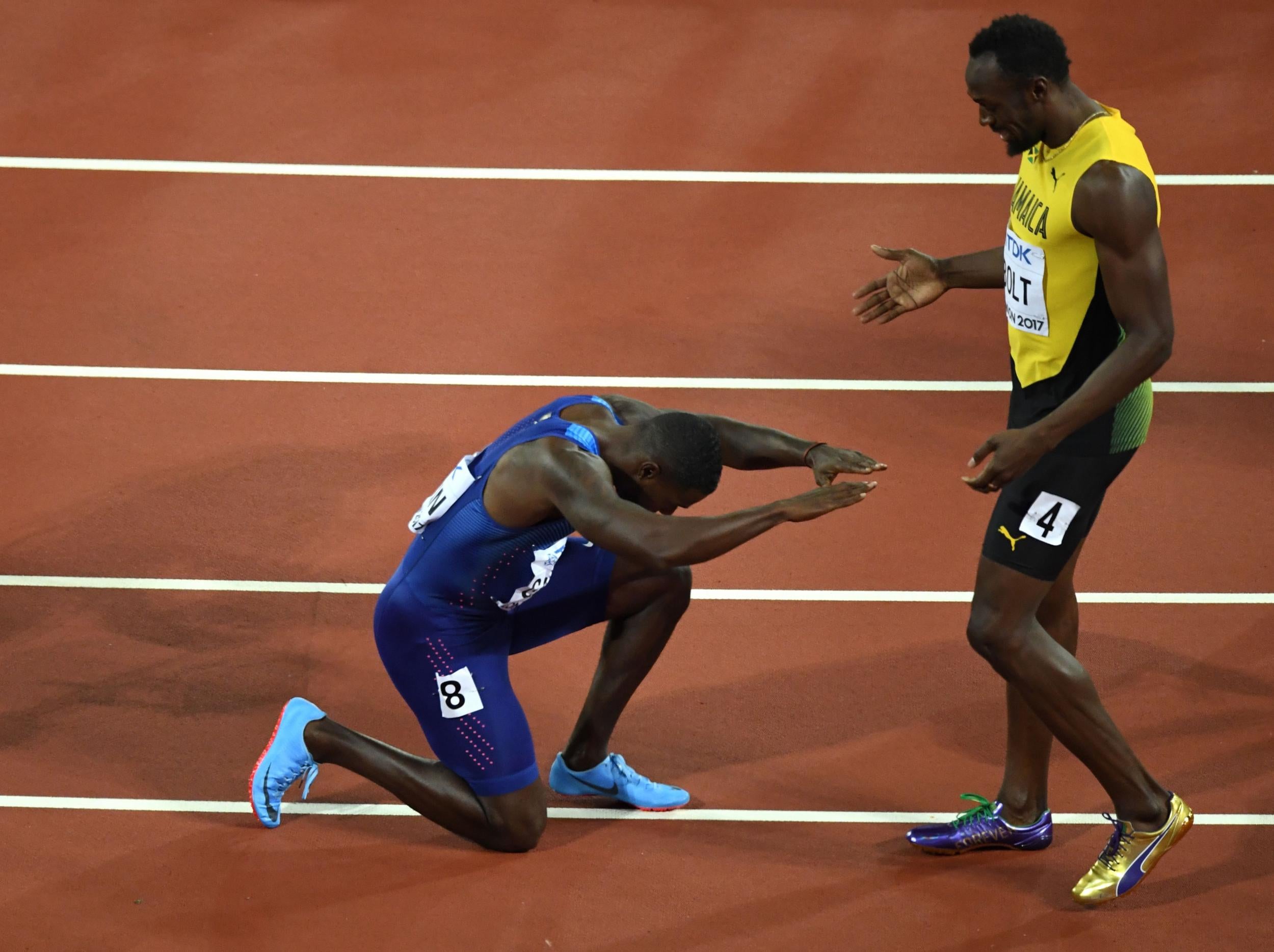World Athletics Championships 2019: Justin Gatlin on living and sprinting with ADHD
Exclusive interview: The controversial sprinter, who won world 100m silver at Doha on Saturday, believes living with the symptoms of attention-deficit disorder has honed his competitive edge

Your support helps us to tell the story
From reproductive rights to climate change to Big Tech, The Independent is on the ground when the story is developing. Whether it's investigating the financials of Elon Musk's pro-Trump PAC or producing our latest documentary, 'The A Word', which shines a light on the American women fighting for reproductive rights, we know how important it is to parse out the facts from the messaging.
At such a critical moment in US history, we need reporters on the ground. Your donation allows us to keep sending journalists to speak to both sides of the story.
The Independent is trusted by Americans across the entire political spectrum. And unlike many other quality news outlets, we choose not to lock Americans out of our reporting and analysis with paywalls. We believe quality journalism should be available to everyone, paid for by those who can afford it.
Your support makes all the difference.The controversial sprinter Justin Gatlin says his sustained ability to rise to the occasion in major athletics events is partly attributable to the neurological condition he was diagnosed with as a child and still wrestles with as an adult.
The American secured second place behind team-mate Christian Coleman at the World Athletics Championships in Doha on Saturday to collect his 19th global medal, aged 37. Gatlin stopped taking medication for attention-deficit/hyperactivity disorder (ADHD) after it led to the first drugs ban of his controversial career. The suspension was later overturned after his lawyers cited the Disabilities Act.
The verdict allowed Gatlin to win gold at the 2004 Athens Olympics but led to him having to contend with the symptoms of ADHD independently of the medication he had previously relied on to prevent his condition undermining his work and education.
“For me it has always been an uphill battle because my mind’s always racing a mile-a-minute,” Gatlin tells The Independent, briefly stammering when name-checking the condition he describes as a “very disabling” impairment. “It’s hard for me to dial in sometimes and be focussed, even though I know that I’m ready.”
At the start of his career Gatlin depended on the prescription amphetamine Adderall, a common treatment for ADHD, but it contravened US Anti-Doping Agency (USADA) policy and in 2001 Gatlin was banned for two years, later reduced to one.
The success Gatlin went on to enjoy at the Athens Games coincided with the emergence of the swimming legend Michael Phelps, who rejected medication and behavioural therapies within two years of his own ADHD diagnosis, received when he was seven years old. Basketball icon Michael Jordan is another sports star to have thrived after learning he had the condition.
Gatlin’s own diagnosis relates to what is described clinically as inattentiveness (rather than hyperactivity). He says he has never been able to overcome his impairment when it comes to focusing on “all the monotonous things” involved in day-to-day preparation. However, the three-time world champion revealed to The Independent that he has come to see his condition as something that steels him from the pressure and spotlight of global finals, occasions which can overwhelm other athletes.
“ADD sucks during training, but coming into finals I actually feel such an energy burst because when I step out on to the track, and I hear so much and I see so many people and my mind gets distracted, I kind of just feel at home actually. It’s eerie but it makes me feel good there’s so much going on.”

Psychiatrist Dr Dale Archer highlights a capacity reported by many of the patients he’s seen with ADHD, that of achieving a laser-like focus when they arrive in particular situations that others find chaotic, in his book Better than Normal.
“The term ‘hyper-focus’ comes up often,” Dr Archer says. “The problems associated with ADHD are well known [but] there are indeed positives. Many of these strengths translate well to sports. Athletes with ADHD tend to perform better in sports that require hyper focus: short and intense bursts of attention.
“They can be in the moment, with a heightened awareness of their immediate environment. They excel in chaotic conditions and thrive under pressure.”
While Gatlin flourished on Saturday, back at the refurbished Khalifa Stadium in Doha where he once equalled the world 100m record, others complained about feeling preoccupied by the half-empty stadium, the weather conditions or their bodies not responding when they most needed them to.
“The stadium not being full had an effect on the race,” complained the South African Akani Simbine, who felt he underperformed in finishing fourth. “I wanted to finish on the podium [but] the crowd makes a difference. It just felt like a Diamond League meet most of the time, not really like a world champs.”
Team GB’s Zharnel Hughes, who qualified third fastest for the final before taking sixth, could only reflect that his “body wasn’t feeling up for it tonight unfortunately. When I pushed out I was all over the place and I lost my form and I’m not happy.”
Some argue that because it can bring positives as well as challenges, ADHD should be recognised as neurodiversity rather than as an impairment, as it currently is in both US and UK law. Gatlin says that the limitations it brings should not be underestimated. “Sometimes you can block out a lot of things because you’re thinking about so much and you can distract yourself, but sometimes that distraction of being ADD can really set you back.”
Making seemingly careless mistakes in conversation is another symptom of ADHD and Gatlin slips in referring to a ‘Keni Harris’ – rather than the sprint hurdles world record holder Keni Harrison – when he name-checks a teammate in the US squad in Doha, who he says shares the same diagnosis, during our interview.

Gatlin also make mention more than once of a ‘Christopher’ – rather than Christian – Coleman after their showdown in the desert nation. Coleman, who competed for the same University of Tennessee college as Gatlin, has forged a growing bond with his compatriot since turning professional two years ago.
“Nobody sees what goes on behind closed doors to work so hard, to make it to this point,” Coleman says. “You can never count Justin out. He’s a great guy and a great competitor, especially at his age. I knew he was going to make it to that final and I knew he was going to compete.”
Coleman’s empathy with Gatlin may grow. The younger American is discovering what it feels like to be associated with doping controversies having recently avoided a suspension for missing three drug tests on a technicality.
Critics such as the former double Olympic champion Michael Johnson say the pair only have themselves to blame for how they are perceived. Gatlin maintains that his second violation – he tested positive for testosterone in 2006 – was caused by a steroid cream being applied by a member of his team without his knowledge. A vow to be more careful with who he associated with followed but earlier this week Gatlin was reportedly spotted with disgraced former athletics coach Dennis Mitchell.
Rightly or wrong Gatlin may feel misunderstood for long as his career endures. But he feels he now understand himself better than he ever has.
The next challenge for the sprinter is the 4x100m relay in Qatar next weekend. 2020 brings a world indoor championships in China and an Olympic Games in Japan. Seize each opportunity and Gatlin will end his career not only as male sprinting’s most divisive athlete, but he’ll overtake Usain Bolt to become its most decorated.
Join our commenting forum
Join thought-provoking conversations, follow other Independent readers and see their replies
Comments